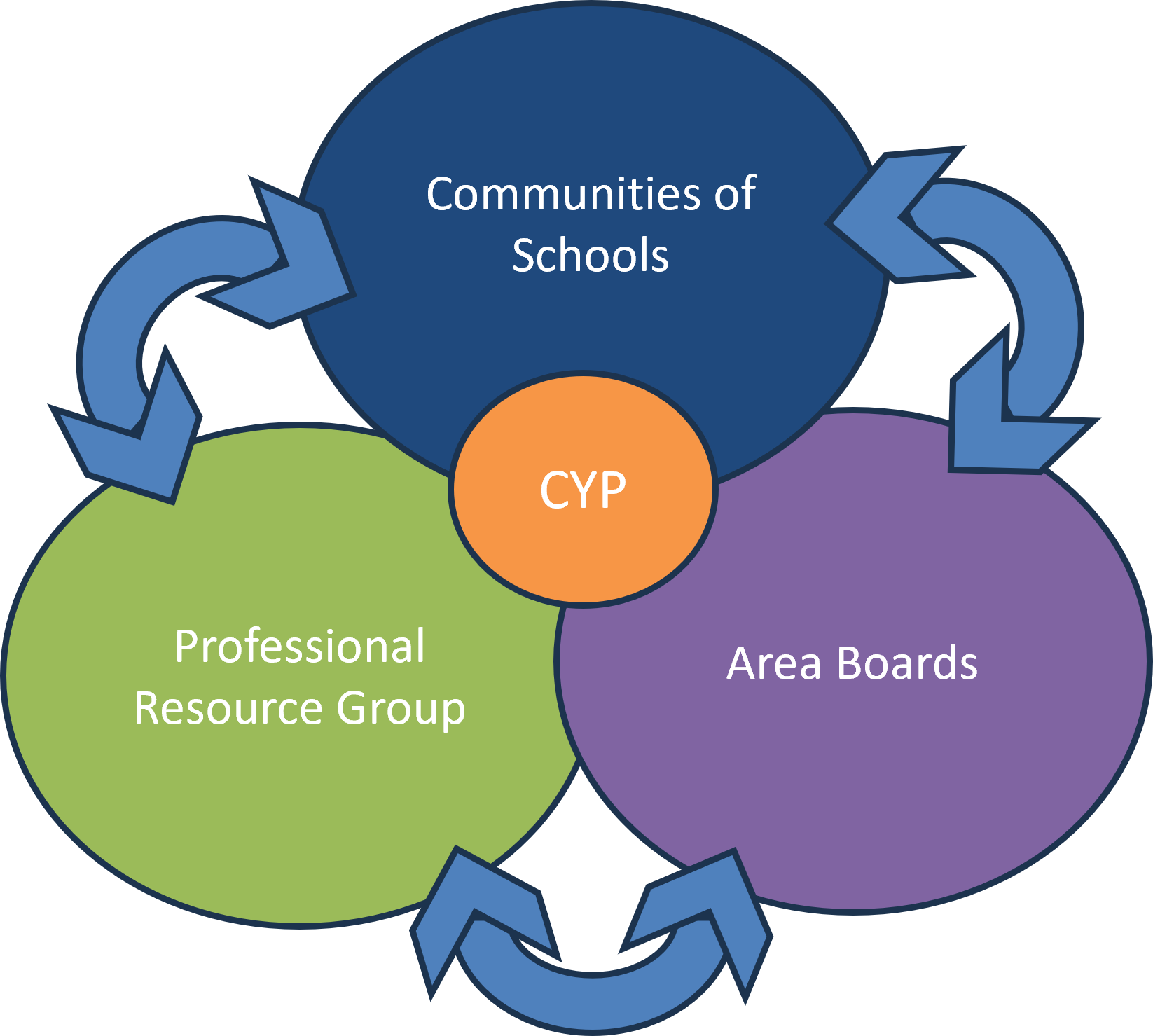Locality Model for School Inclusion
There are key areas within the Locality model, each with their own dedicated pages.
Area Boards (AB)
Communities of Schools (CoS)
Professional Resource Group (PRG)
Updates, Frequently Asked Questions and Keeping in Touch

The Kent local area is moving towards a structure to develop inclusive practice which will enable more children to have their needs met at their local mainstream school. This intent was first discussed with school representatives in 2020 and published as agreed KCC policy in the Countywide Approach To Inclusive Education (CATIE) in 2023. The purpose:
- devolve some decision making to a local level
- empower headteachers and professionals to make evidence-based decisions about best use of High Needs Funding (HNF) money in collaboration with peers
- drive good practice and greater consistency through peer challenge and support
- reduce bureaucracy.
Priority number one of the CATIE pledges to support a school led system to deliver the highest quality core inclusive education. This priority focuses on building capacity within settings through a tripartite model, which brings together the development of a core training offer, leadership development programmes and peer-to-peer review structures across the county. We intend to support, challenge and empower education providers to deliver the highest quality of inclusive education provision for Kent’s children and young people such that:
- there is improvement in outcomes, attainment, progress, attendance and exclusion, made by all children and young people
- achievement gaps close for pupils on free school meals, children in care and pupils with SEND
- all children and young people have equitable access to a challenging and wide-ranging curriculum.
We will do this by:
- Developing a countywide partnership of local schools to develop locality work to form a secure partnership network for school improvement across Kent with inclusion at its core, to support teacher development and spread the influences of the best practice in improving quality first teaching and raising standards, including narrowing achievement gaps
- Committing to inclusive leadership to develop and grow the inclusive nature of our mainstream schools
- Establishing a system of peer moderation to support the sharing and growth of inclusive practice in a non-judgmental manner
- Providing wider community practices and locality working. Locality working will provide schools with the opportunity to contribute to local inclusion plans and have access to a multi-disciplinary team which will provide more targeted support for schools
- Reviewing how HNF is distributed so that schools can have flexibility to plan a curriculum and/or therapies to meet ever changing needs and local priorities
- Developing local inclusion plans in line with current government strategy to improve provision at all levels
- Designing and creating local structures so that appropriate outreach can be accessed and local commissioning can be improved
- Exploring and developing how to improve attendance of children and young people with SEND.
In Kent, the ‘local area partnership’ refers to those in education, health and care who are responsible for the strategic planning, commissioning, management, delivery and evaluation of arrangements for children and young people with SEND who live in a local area. A local area is the geographic footprint of a local authority. When evaluating the local area partnership, the focus is mainly on how effectively the local authority and Integrated Care Board (ICB) jointly plan, evaluate and develop services for children and young people with SEND.
Ofsted CQC framework April 2024
- Inspectors assess the extent to which the local area partners are complying with relevant legal duties relating to arrangements for children and young people with SEND. Relevant legal duties may include duties under the Children and Families Act 2014, the Equality Act 2010 and the Human Rights Act 1998.
- Inspections evaluate how well members of a local area partnership work together to improve the experiences and outcomes of children and young people with SEND. The focus is not on inspecting the specific individuals that work in the local area partnership.